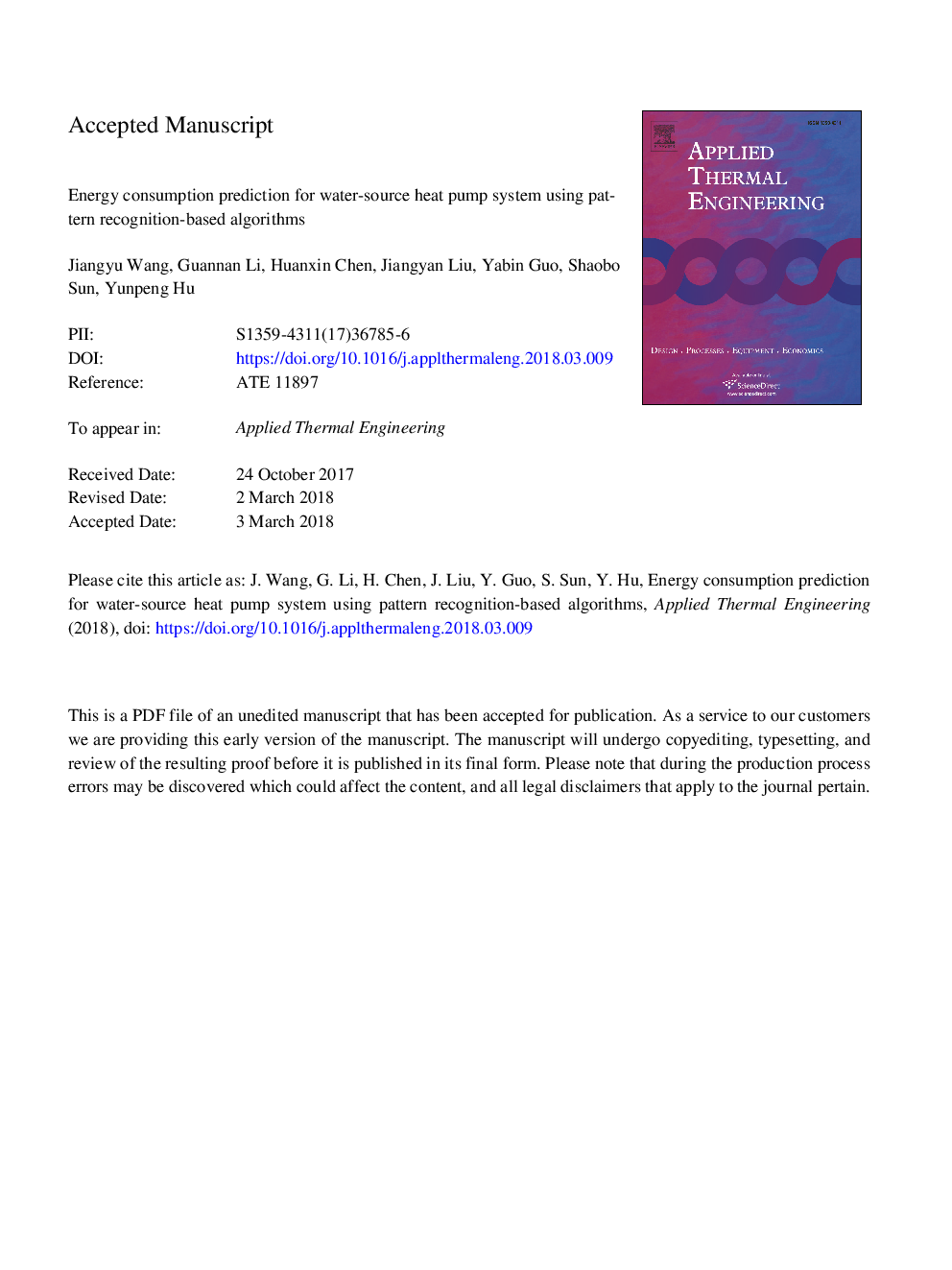ترجمه فارسی عنوان مقاله
پیش بینی مصرف انرژی برای سیستم پمپ حرارتی آب با استفاده از الگوریتم های تشخیص الگو
عنوان انگلیسی
Energy consumption prediction for water-source heat pump system using pattern recognition-based algorithms
| کد مقاله | سال انتشار | تعداد صفحات مقاله انگلیسی |
|---|---|---|
| 159445 | 2018 | 29 صفحه PDF |
منبع

Publisher : Elsevier - Science Direct (الزویر - ساینس دایرکت)
Journal : Applied Thermal Engineering, Volume 136, 25 May 2018, Pages 755-766
ترجمه کلمات کلیدی
پمپ های حرارتی منبع آب، پیش بینی مصرف انرژی، تجزیه خوشه ای، درخت عملیات، الگوهای عملیاتی پمپ ها،
کلمات کلیدی انگلیسی
Water source heat pumps; Energy consumption prediction; Clustering analysis; Operation tree; Operation patterns of pumps;

